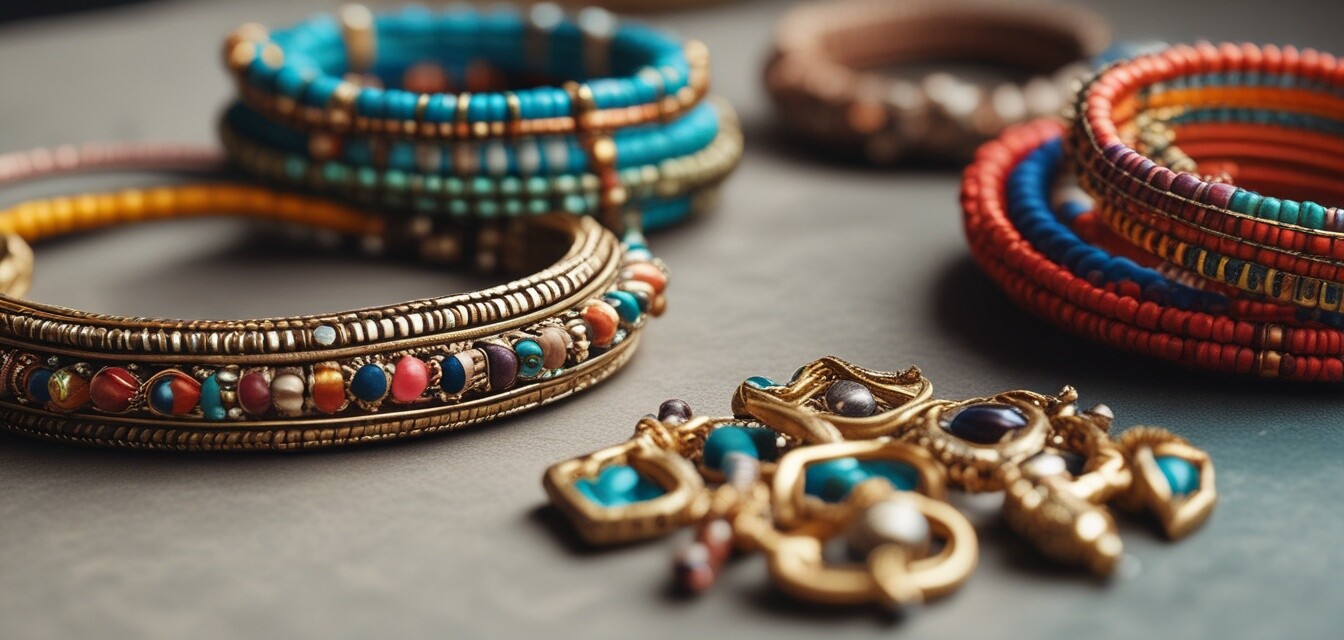
How cultural influences shape jewelry designs
Key Takeaways
- Cultural heritage plays a vital role in determining jewelry styles and preferences.
- Materials and techniques vary significantly with cultural background, influencing design trends.
- Jewelry serves as a cultural marker, representing tradition, history, and personal identity.
- Understanding these influences can help consumers make informed purchasing choices.
The world of jewelry is not just about beauty; it's a canvas painted with stories, histories, and cultures. Each piece tells a tale, reflecting the aesthetics and values of the society that created it. As we take a closer look at the ways different cultures influence jewelry design, we uncover fascinating patterns that connect artistry with cultural significance.
The significance of jewelry across cultures
Jewelry has long been an integral part of human life, from ancient civilizations to modern society. It transcends mere adornment; jewelry often symbolizes status, spirituality, and personal milestones.
Cultural diversity in jewelry design
Jewelry varies massively around the globe, influenced by different cultural elements. Here are some examples:
| Culture | Jewelry Type | Materials Used | Significance |
|---|---|---|---|
| Indian | Gold Bangles | Gold, Silver | Tradition and status in marriage |
| African | Beaded Necklaces | Glass beads, Cowrie shells | Symbol of heritage and storytelling |
| Scandinavian | Minimalist Rings | Silver, Wood | Connection to nature and simplicity |
| Japanese | Washi Paper Jewelry | Washi paper, Leather | Artistic expression and craftsmanship |
Influence of culture on materials and techniques
The materials and methods used in jewelry making are often dictated by cultural traditions and the environment. For instance, tribes in different regions may utilize local materials to create unique designs:
- Nature-based materials: Many indigenous cultures incorporate materials from their environment, such as bones, stones, and plants, into their jewelry.
- Influence of technology: Regions with thriving industrial technologies may favor metals and synthetic materials, resulting in polished and modern designs.
- Historical context: Historical events, such as trade routes and colonialism, introduce new materials and styles that alter indigenous practices.
Celebration of identity through jewelry
Jewelry is often used as a method of expressing one’s cultural identity. The choice of design may stem from:
- Heritage: Pieces often reflect one’s ancestry and pride in one’s background.
- Rituals: Many cultures use specific jewelry in ceremonies that mark important life events.
- Fashion trends: In today’s interconnected world, traditional styles may blend with contemporary fashion, creating unique interpretations.
Contemporary trends influenced by culture
As globalization continues, we see a fascinating interplay between traditional and modern designs. Some prominent trends include:
Pros
- Connection to cultural roots
- Diversity in design options
- Symbolism in personal jewelry
Cons
- Cultural appropriation concerns
- Commercialization of traditional designs
- Loss of traditional craft skills
The future of jewelry design: A blend of tradition and modernity
Looking ahead, it’s clear that cultural influences will continue to shape jewelry trends. Designers are increasingly looking to the past for inspiration while embracing innovation and sustainability:
- Sustainable practices: Many artisans are integrating eco-friendly materials while honoring traditional techniques.
- Technology in design: Advances like 3D printing open avenues for unique, personalized jewelry.
- Hybrid designs: Melding various cultural elements is creating hybrid pieces that appeal to diverse markets.
Staying informed about these evolving trends is essential. For those interested in exploring further, consider reviewing current trends in the News and Trends section of our site, or check out our Buying Guides for insightful tips on selection.
Conclusion
Cultural influences are a driving force behind the aesthetics, materials, and significance of jewelry design. By embracing these influences, we can appreciate the artistry that goes into each piece while recognizing its cultural context. Whether you’re a discerning buyer or a jewelry enthusiast, understanding these trends enhances your connection to the world of jewels.
Explore our product categories for unique pieces inspired by diverse cultures: